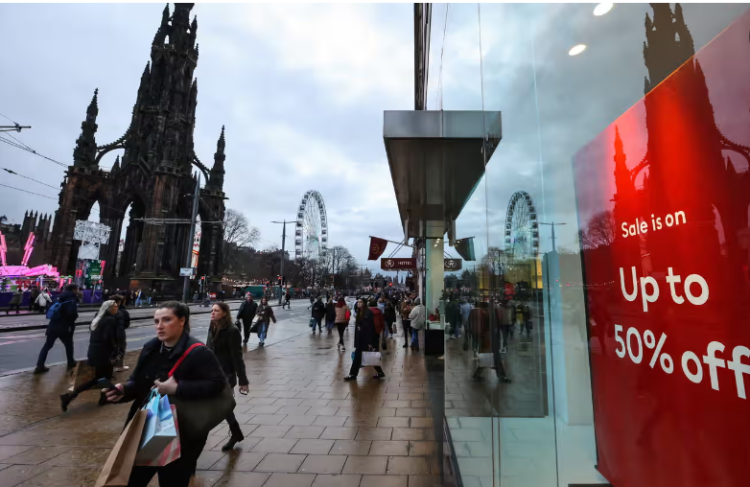Britain has entered a recession, having experienced two consecutive quarters of negative economic growth in the latter part of last year. According to a statement from the Office for National Statistics, the gross domestic product (GDP) contracted by 0.3 percent in the fourth quarter of 2023, following a 0.1 percent contraction in the preceding three months. This decline meets the technical definition of a recession. The confirmation of a recession is a setback for the government, especially with an election looming within a year. It is also a source of embarrassment for Chancellor Rishi Sunak, given the prime minister’s emphasis on economic growth as one of the government’s top priorities at the beginning of last year.
Shadow Chancellor Rachel Reeves commented on the situation, stating that Rishi Sunak’s commitment to economic growth has now fallen apart. She argued that the prime minister can no longer claim that his plan is effective, given over 14 years of economic decline under the Conservatives, leaving Britain worse off.
The ONS reported that the overall growth for 2023 was estimated at 0.1%, marking the weakest performance since 2009, excluding the economic collapse in 2020 during the Covid pandemic.
Liz McKeown, the director of economic statistics at the ONS, explained that the UK economy contracted in the fourth quarter of 2023, shrinking for two consecutive quarters. Despite this, the economy remained broadly flat over the entire year. Various sectors, including manufacturing, construction, and wholesale, contributed to the decline, partially offset by increases in hotels and rentals of vehicles and machinery.
Economists had anticipated a mild recession at the end of the previous year due to households facing pressure from higher borrowing costs and increased prices for everyday essentials, leading to cutbacks. Widespread strikes and heavy rainfall also dampened economic activity.
Recent data has shown a rebound in consumer confidence in the early months of this year, bolstered by the prospect of interest rate cuts from the Bank of England as inflationary pressures ease. The Bank’s governor, Andrew Bailey, downplayed the significance of the quarterly GDP figures, suggesting signs of an upturn in the economy would become clearer in the coming months.
Chancellor Jeremy Hunt attributed low growth to high inflation, emphasizing that cutting taxes on work and business remains crucial for building a stronger economy. He highlighted positive indicators such as rising wages, lower mortgage rates, and low unemployment, expressing confidence in the British economy turning a corner.
The ONS’s latest snapshot indicated weaknesses across various sectors at the end of the previous year, including a decline in GDP during the Christmas shopping period, strikes by junior doctors, and adverse weather conditions. Amid a cost of living crisis, the ONS noted a decrease in output in the dominant services sector for three consecutive quarters, with a 0.2% drop in the last quarter of 2023.
Suren Thiru, the economics director at the Institute of Chartered Accountants in England and Wales, found comfort in the shallowness of the recession but highlighted that the figures confirm the economy’s persistent stagnation throughout 2023, influenced by multiple challenges, including high inflation.

















Comments